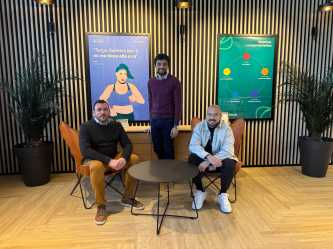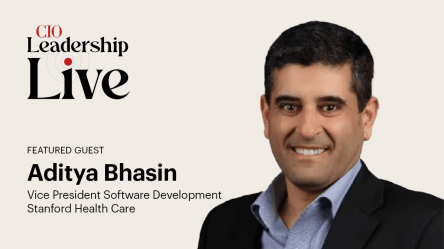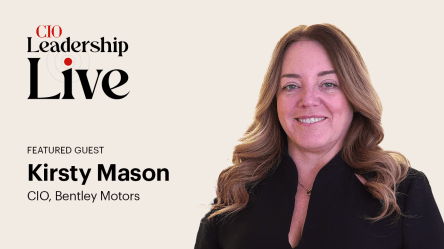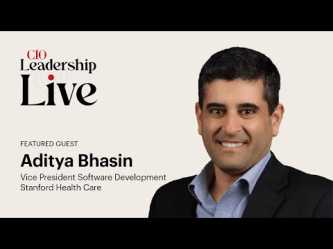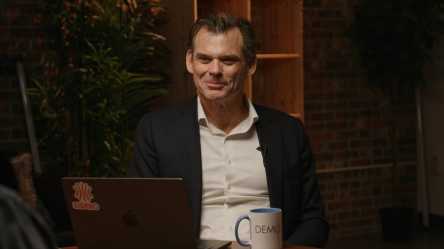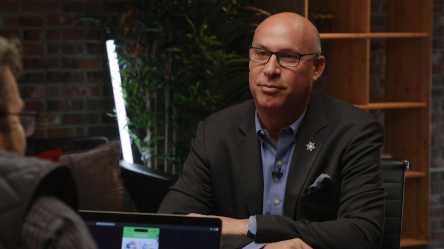Floor Bleeker wanted to be a chef, maybe a trader, but IT was not on his radar, until he was offered an internship at a small IT company in Aruba; the rest, as they say, is history.
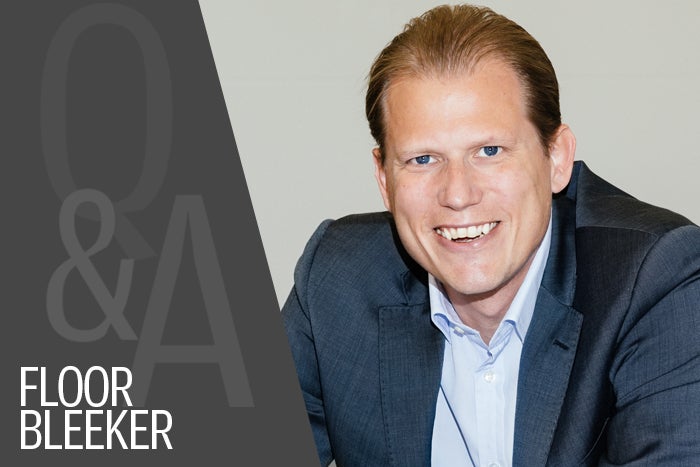
Mövenpick Group CIO Floor Bleeker is responsible for IT strategy, program development and implementation across the group. He also oversees the IT shared service organization covering Mövenpick Group, Mövenpick Marché Restaurants, Mövenpick Fine Food and Mövenpick Wine. Prior to joining Mövenpick Hotels & Resorts, Floor worked with the Jumeirah Group in Dubai, UAE for over 12 years. He was recently named president of HTNG, the world’s largest hospitality technology organization. Here he discusses how he got into IT and the importance of good company culture.
What was your first job? I started a party business with a couple of friends when we were in high school — mainly because we liked going to parties ourselves. We didn’t make much money, but we had a lot of fun doing it.
Did you always want to work in IT? Definitely not! When I was very young I wanted to be a chef and when I got a bit older I wanted to be a trader. Going to hotel management school was the happy medium I guess, and I ended up in IT by chance. In my second year I didn’t really want a service or kitchen internship and one of the options left was in EDP (what we called IT back then) in a small company in Aruba. A week after I started my boss left and I took over the department. I was very lucky to have such an understanding general manager because I had no clue. However, I did love it and have been working in IT ever since.
Tell us about your career path. I started off as a management trainee in Radisson in Belgium just before Y2K, when IT was in high demand. After doing my MBA I joined The Emirates Academy in Dubai as the IT manager and progressed through several different roles within Jumeirah. Eventually I became vice president of business solutions. I then moved to Mövenpick in Switzerland as their CIO.
What business or technology initiatives will be most significant in driving IT investments in your organization in the coming year? Our Mövenpick brand promise, ‘we make moments.’ is the catalyst for a transformation process that has impacts across the business. In IT we have a key part to play in reinventing the customer experience to deliver on this promise. As a result, most of our IT investments this year are directed to a new CRM platform and an enhanced digital customer experience. This commercial systems program has involved a complete revamp of our distribution, revenue management and customer recognition systems to deliver a suite of fully mobile-enabled cloud-based tools.
What are the CEO’s top priorities for you in the coming year? How do you plan to support the business with IT? The commercial transformation I mentioned is a top priority for all of us in the executive team. We are also on track to add 15 percent to the portfolio this year and, as CIO, it is important that IT is agile enough to support such aggressive growth. We have streamlined our solutions so that we can now fully integrate a new hotel within six weeks. A third priority is enhancing our corporate culture; communication and collaboration across virtual teams is increasingly important and IT has a fundamental role in providing the tools to facilitate this.
Does the conventional CIO role include responsibilities it should not hold? Should the role have additional responsibilities it does not currently include? The role of the CIO and the entire in-house IT department is definitely changing. Cloud solutions, managed services and business process outsourcing means our job is less technical; it is now much more about managing relationships and projects and being a strategic partner to the business. I spend most of my time with the head of commercial and his team. For example, together we identify recognition and distribution opportunities. I believe this partnership is key to success in the future. It might even make sense for the two departments to merge in some organizations.
Are you leading a digital transformation? If so, does it emphasize customer experience and revenue growth or operational efficiency? If both, how do you balance the two? We are close to completing a long-term transformation across revenue management, distribution, online, marketing, CRM and BI. With these solutions in place we now have an industry-leading platform that provides a great foundation for business optimization as well as for new services. Our next focus will be our internal platforms so that we can really engage and mobilize our 20,000 Mövenpick team members across the world.
Describe the maturity of your digital business. For example, do you have KPIs to quantify the value of IT? We have very clearly defined KPIs for IT. We have a good mix of traditional ones like response time and IT cost as a percentage of revenue as well as some business-orientated ones like system generated revenue and customer satisfaction. My personal KPIs are mainly around our general business outcomes such as EBIDTA and network growth.
What does good culture fit look like in your organization? How do you cultivate it? ‘Performance culture with mutual support’ would be a good description of how we work. The expectation is that we work hard and we aim high, but we also have a lot fun and we are definitely in it together. There are 120 of us in the IT team, spread around the world. We prioritize communication and engagement and make sure that everyone is involved. For example, we have a weekly all hands Skype session, a very active WhatsApp group, virtual cross-functional teams and an annual global conference.
What roles or skills are you finding (or anticipate to be) the most difficult to fill? There is a real need for us to transform ourselves in IT and develop a whole new set of skills. In the past we needed technical generalists with a bit of knowledge about applications, a bit about networking, a bit about support, a bit about security, etc. However, solutions have become so complex that we rely on specialist vendors for most of our system delivery and it is much more important that IT managers understand the business and how technology can enhance it. This also means it is vital for them to communicate well, manage partners and be great project managers.
To support our team members through this transition from generalist to specialist we have developed virtual specialist ‘Champion’ teams. This gives individuals the opportunity to develop a greater understanding of one aspect of IT — a technology or an issue — across geographies and hierarchies.
What’s the best career advice you ever received? I have been very lucky to have had excellent bosses who provided me with great role models rather than explicit ‘advice.’ What they had in common was that they took a chance on me and took time to mentor me. Then they let me go and allowed me to fail and learn from mistakes and even pushed me to do things I wasn’t comfortable with. I learned different things from each one and am still in touch with all of them. I am forever grateful for the energy they put into me and hope I am taking the same approach with my team today.
Do you have a succession plan? If so, discuss the importance of and challenges with training up high-performing staff. We have a succession plan for the senior team and have identified one or two successors for each role. We have analyzed any skills gaps so that we tailor our training and development to ensure these individuals are ready for future challenges.
What advice would you give to aspiring IT leaders? Early on in your career, select a boss, not a company or a specific job; a great boss will allow you to learn and flourish. And definitely don’t chase the money. The financial rewards will come down the road if you grow and develop, but you can only do this with the right mentorship and support.
What has been your greatest career achievement? My proudest moments are when I see the people in my team flourishing and achieving their goals. I am lucky to have many colleagues who started with me in junior positions and who now have leadership roles with us or with other large organizations.
Personally, I was very proud to be recently appointed President for HTNG (htng.org), the world’s largest hospitality technology organization. It is a great honor to be recognized by my peers in the industry.
Looking back with 20:20 hindsight, what would you have done differently? Many years ago, my wife and I had the opportunity to become equity partners in one of the first commercial ISPs in Europe. We decided to go to Hotelschool instead. While everything has turned out great for us, financially it would have been a nice move…
This interview is part of CIO’s regular Spotlight series, which focuses on the career paths of IT leaders. If you know someone (or are someone) with a story worth telling, please contact kate_hoy@idg.com.

